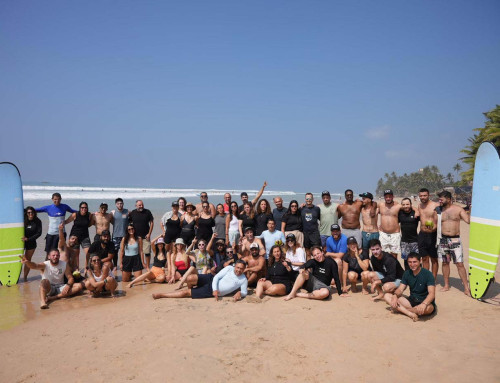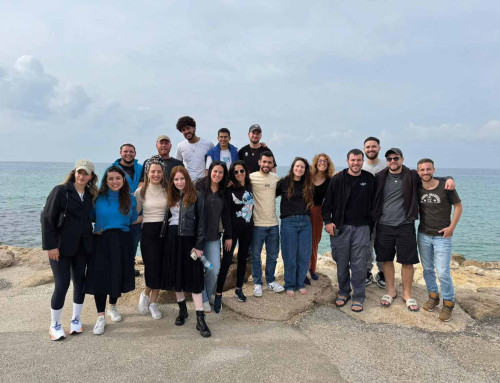Original Source: Article published in Israel Hayom
“Did you hear what happened?”

It was a miracle that nobody was injured in that attack. An alert passenger spotted the device and the bus driver, Michael Yoger, ordered all the passengers to evacuate. Yoger has deflected claims of heroism, saying that his reaction was simply natural.
The sad truth is that, as a nation, we are well-practiced in this area. Our near-perfect response times point toward a deeper truth, a realization that terror never sleeps; it is always there just beneath the surface. This is our truth and nonstop reality every hour of every day.
We have learned that terrorism is indiscriminate and that each attack shares the same goal: to kill and injure as many people as possible, every time. Attacks are not confined to bombings but also include shooting, rock throwing, and other “creative” acts of extreme violence. The victims of terror attacks are rarely politicians or career soldiers. More often, they are innocent men, women, and children who are caught in political, social, and religious crossfire.
The Shin Bet security agency reports that there are more attempted terror attacks each year than there are days in the year. The relative calm we have experienced over the last few years is thanks to stellar intelligence-gathering and the quick and effective response of our security services, not to mention the miraculous premature explosions of bombs in the hands of their makers as well as faulty explosive devices.
But when we are lulled into a false sense of security, it is never long before we are reminded of the violent and painful truth: Terror never rests.
The last five months have been a painful wake-up call.
In September, Israel Defense Forces Sgt. Tomer Hazan was kidnapped and murdered in the West Bank, and Staff Sgt. Gal (Gabriel) Kobi was shot and killed at a checkpoint near Hebron’s Cave of Patriarchs by a Palestinian terrorist. Less than a month later, retired Col. Sraya Ofer was beaten to death by terrorists in the Jordan Valley.
In November, 19-year-old Cpl. Eden Atias, a new IDF recruit on his way to his army base, was brutally murdered by a Palestinian teenager at the central bus station in Afula. In December, eight separate attacks were launched from the Gaza Strip, Defense Ministry employee Salah Abu Latif was shot and killed by Palestinian gunmen while working on the Gaza border fence, a police officer was stabbed, 69 terror attacks were reported in Judea and Samaria, and 26 further attacks were reported in Jerusalem.
And despite renewed peace talks in January, two rockets were fired into Israel during former Prime Minister Ariel Sharon’s funeral.
Since 2000, acts of violence and terror have injured more than 10,000 Israeli civilians and claimed the lives of 1,402 men, women and children. Still the loss of life and physical wounds are only half the story.
Thousands of Israelis suffer from debilitating psychological trauma, and every one of us cannot help but see the world in shades of black and gray. In addition, the high cost of medical bills or the loss of a breadwinner can cripple families financially. In an instant, families are plunged into darkness of every kind.
As such, it should be understood that there are never truly periods of “quiet” in Israel. Even if there is relative peace and all seems to be “business as usual,” we must realize that the effects of terror also never rest. Individuals and families continue to suffer regardless of the level of actual terror activity on our streets.
The negative ripple effects of terror attacks do not fade quickly. Reintegration into society and the rebuilding of lives take years. For this reason, we must continue to pay attention to those affected by terror and aid them in any way we can.
At OneFamily, an organization that works to rehabilitate and support victims of terror and their families, it has become clear that this awareness is our greatest weapon. When we are attentive to those in pain and look for ways to deal with the long-term effects of terror, we achieve two minor victories over terror.
The first is that we dilute the element of surprise, the most important factor of any terror attack. If we are never truly complacent, terror cannot achieve the desired effect of shaking us to the core.
Second, we can make sure that no one suffers in silence and that all victims find the strength they need to heal more quickly and more effectively.
While we cannot change the fact that terror is embedded in Israeli life, we do not have to let it drag us down. By remaining vigilant and compassionate, we can turn tragedy into triumph, one victim at a time.
Marc Belzberg is the co-founder and chairman of OneFamily (onefamilytogether.org), a national organization dedicated to the rehabilitation of victims of terror attacks and their families.

![[Podcast] Heartthrob Idan Amedi Concert Coverage](https://onefamilyfundus.org/wp-content/uploads/2025/03/heartthrob-Idan-500x383.jpg)



